In Part 1 of “The People Factor” last summer, we discussed the unique requirements of software companies when it comes to building highly effective leadership teams capable of guiding an organization through the tumultuous and toilsome times faced by a founder entering the emerging category. Part 1 addressed “what” is needed, Part 2 will address what is equally, and arguably more important: “how”.
Surrounding yourself with a high-performing, cohesive group of executives and other critical team members all pulling together toward a common goal doesn’t have to be a roll of the dice! Too often entrepreneurs seek to avoid this feeling of a “crap shoot” by hiring someone they already know, which isn’t always the right solution, either. Attracting a distinctive professional with a proven track record or with an aptitude to motivate and lead others in a company starting to experience significant growth can prove to be more effective than the “friends & family” approach. The question is “how” can one be so sure you’re getting the best fit possible?
Once a candidate has “passed muster” by meeting the requirements outlined in the job description, you can literally throw out the job description and start to evaluate the candidate anew based upon what truly motivates them. While many assessment tools and methodologies have been developed over the years, it still remains that the recurring evidence found in previous performance is the best predictor of future performance. A probing line of questioning designed to uncover what truly motivates people to perform followed by a thoughtful analysis of the collective responses can go far in determining whether or not the opportunity at hand within the emerging company will drive the new hire to perform at the optimal level.
Start by querying the candidate about specific achievements from their work and life experiences that they consider being the most rewarding and satisfying. Take this short list of achievements, probe deeper, expand, and start to assemble evidence of real accomplishments demonstrating how the candidate personally was responsible for the achievement and why they enjoyed it so much. Critical to the questioning is to make sure to not lead the candidate.
It is important to point out the difference between this style of interviewing and “targeted” interviewing. In targeted interviewing, the questions lead the candidate to discuss areas of interest to the interviewer, rather than talking about why they were motivated to accomplish the task. For example, in targeted interviewing, the questioner might ask “This position is responsible for the creation and management of the professional services strategic plan (goals, strategies, and actions). What experience do you have in this area”? The candidate will then proceed to talk about what they have done whether they were motivated to do it or not, simply because it was a part of their responsibility. A better approach is to ask open-ended questions specific to one of the achievements they listed earlier. Examples of open-ended questions that will yield detail responses include:
How did you go about doing that? What part of this experience did you enjoy the most? What would I have seen if I were observing from outside? Give me an example of …? Tell me about …? What was involved in …? What was your role?
Be sure to take detailed notes recording the candidates own words, not your own interpretation. This approach will result in the candidate divulging real evidence of what they have truly accomplished and enjoyed doing! This information will arm you with the data you need to analyze fit to your position.
This information will also provide you with a clearer picture of how the individual interacts with others and how they will impact your organization. In addition, you will also be able to better gauge how the individual’s style will fit with the existing leadership team.
But probably the most significant outcome will be how the collective evidence from previous experiences will help you predict the individual’s performance in your organization.
Kevin Spanbauer
Founding Mentor

